Find Help
More Items From Ergsy search
-
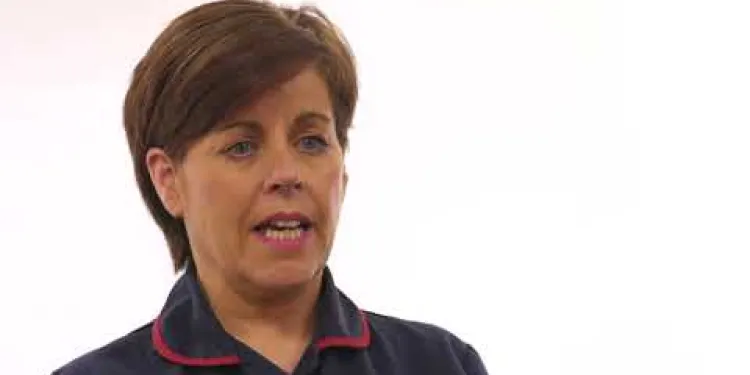
Ovarian Cancer
Relevance: 100%
-

Raising awareness of ovarian cancer
Relevance: 91%
-
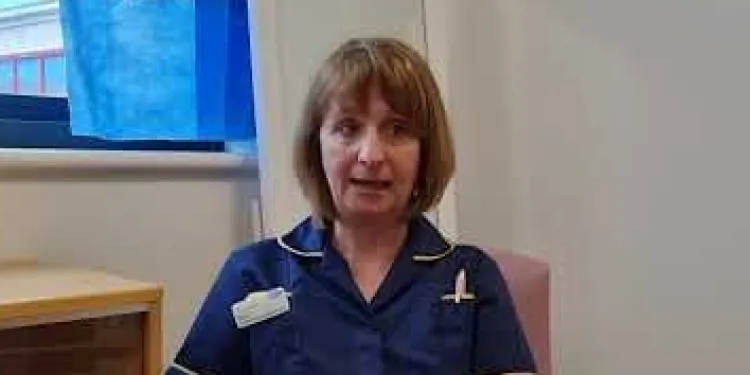
Ovarian cancer - signs and symptoms to look out for
Relevance: 84%
-
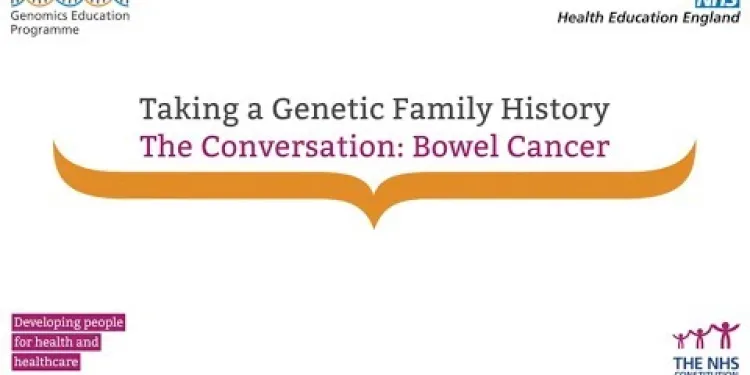
Taking a Genetic Family History - The Conversation (Bowel Cancer)
Relevance: 36%
-
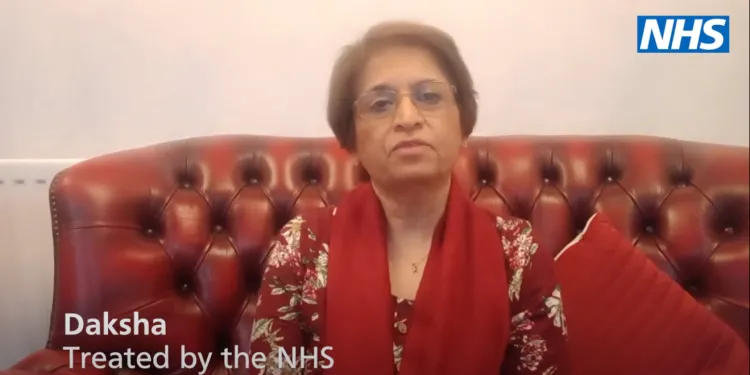
What is Cancer?
Relevance: 33%
-
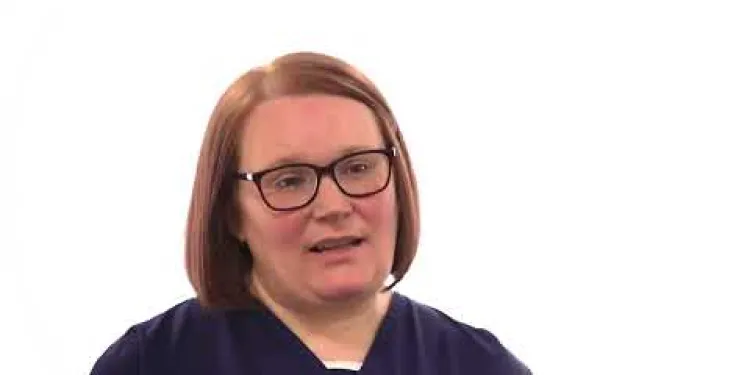
Vaginal Cancer
Relevance: 33%
-
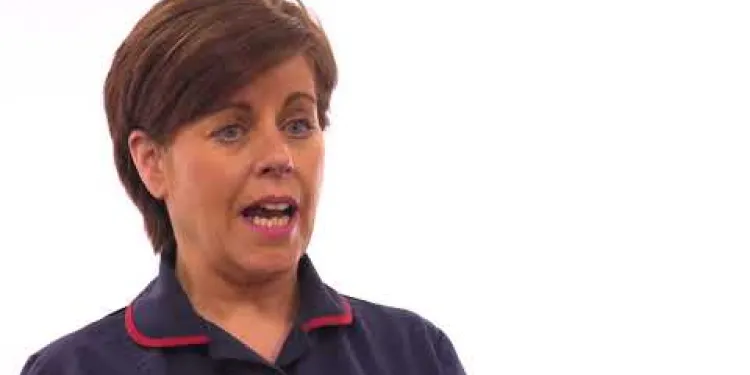
Endometrial Cancer
Relevance: 33%
-
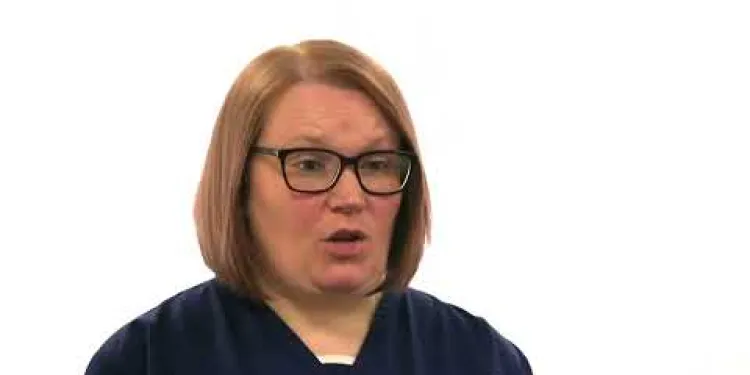
Vulval Cancer
Relevance: 33%
-
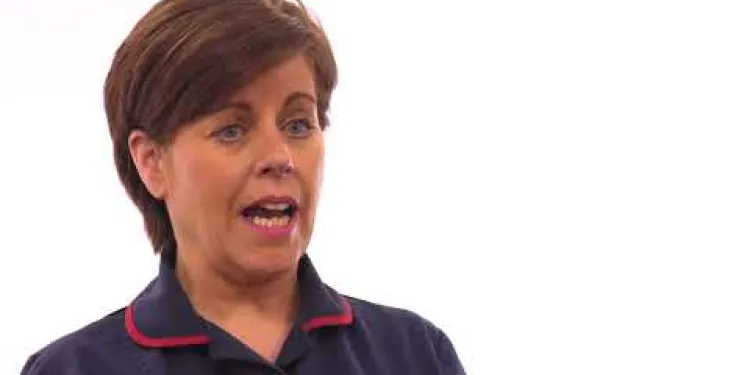
Endometrial Cancer
Relevance: 33%
-
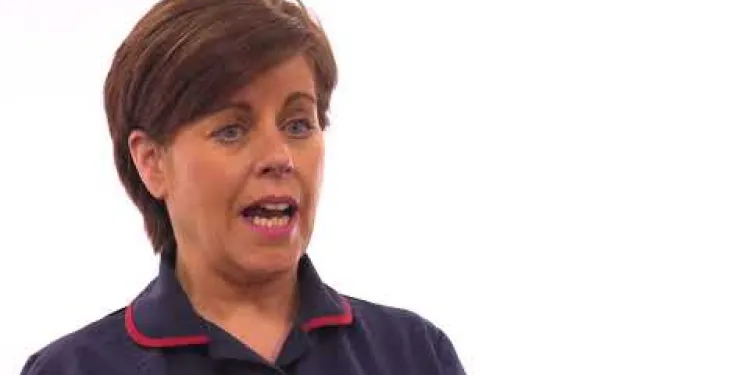
Endometrial Cancer
Relevance: 33%
-

What are the risk factors for bowel cancer?
Relevance: 33%
-
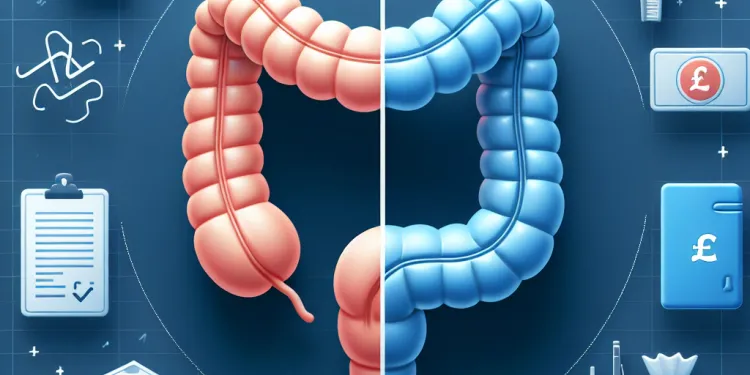
What is the difference between colon cancer and rectal cancer?
Relevance: 32%
-

What is testicular cancer?
Relevance: 32%
-

What is colorectal cancer?
Relevance: 31%
-

What is Bowel Cancer?
Relevance: 31%
-
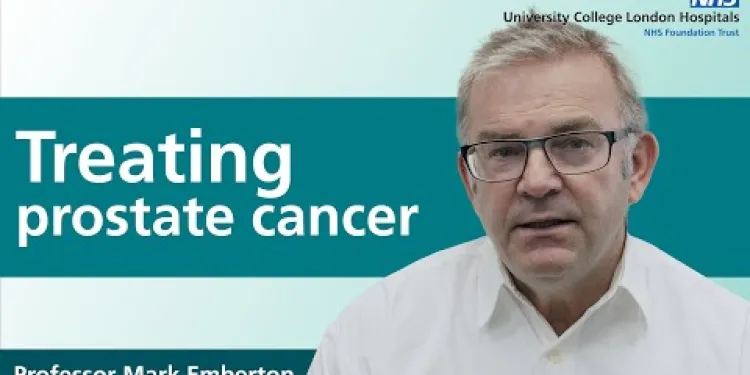
Treating prostate cancer
Relevance: 31%
-
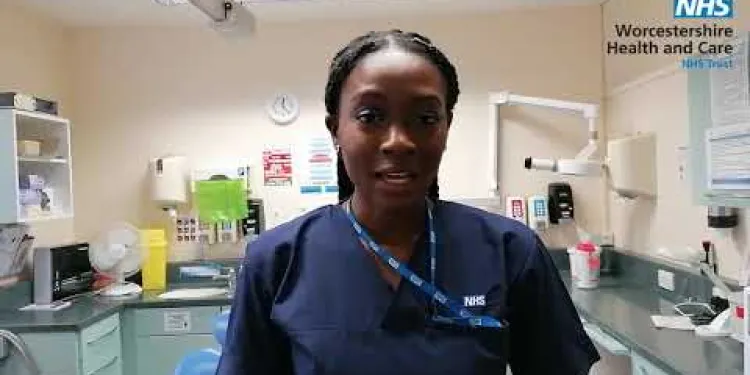
Mouth Cancer Awareness
Relevance: 31%
-

What is testicular cancer?
Relevance: 31%
-
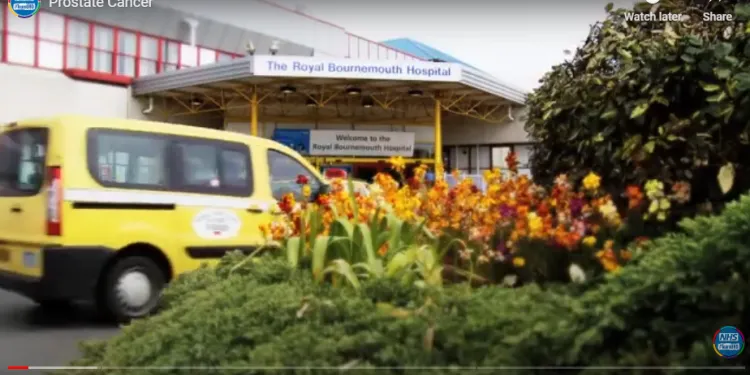
What is Prostate Cancer?
Relevance: 31%
-

What is testicular cancer?
Relevance: 31%
-
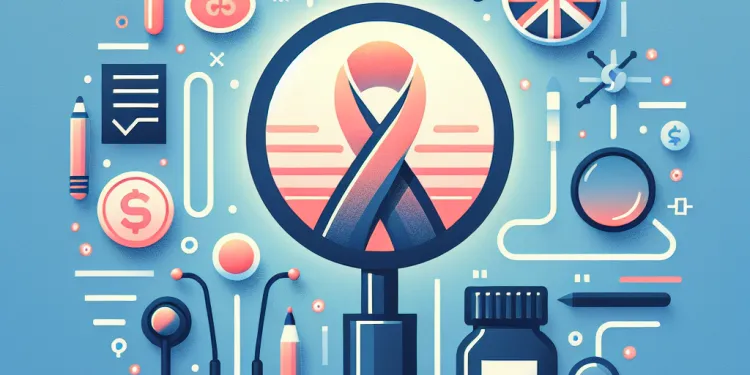
Is testicular cancer treatable?
Relevance: 31%
-

Skin cancer education
Relevance: 31%
-
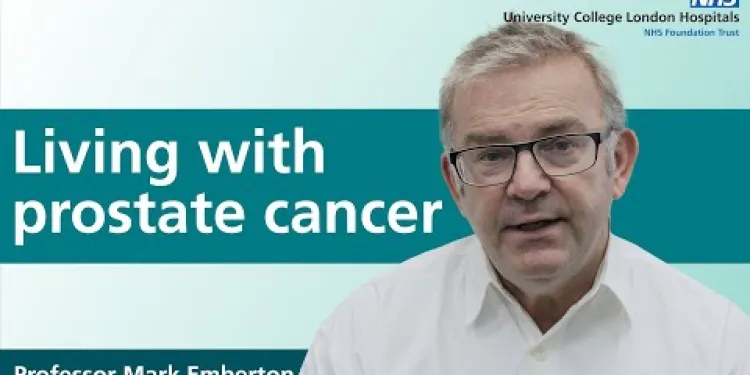
Living with prostate cancer
Relevance: 31%
-

What is Pancreatic Cancer?
Relevance: 31%
-

Mouth Cancer Infomercial
Relevance: 31%
-
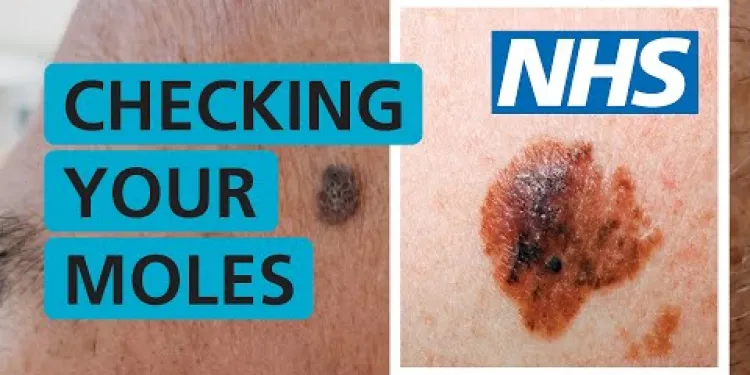
Skin Cancer - How do I check if my mole is skin cancer? | NHS
Relevance: 31%
-

Breakthrough in Cancer Treatment Offers Hope for Prostate Cancer Patients
Relevance: 31%
-
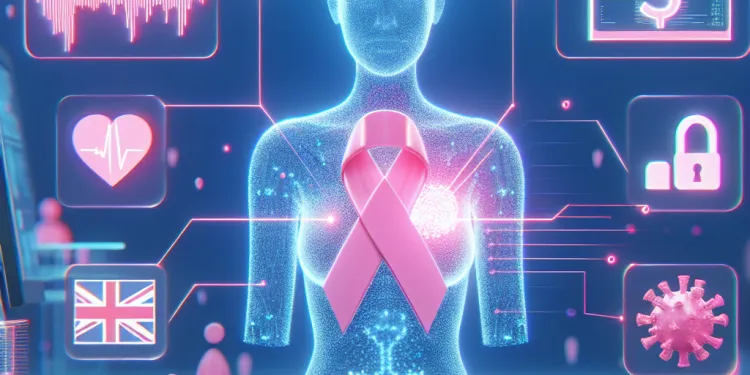
AI Breast Cancer Screening in the UK
Relevance: 31%
-

How common is testicular cancer?
Relevance: 30%
-

What causes testicular cancer?
Relevance: 30%
-

What are the stages of testicular cancer?
Relevance: 30%
-

Who is at risk for testicular cancer?
Relevance: 30%
-
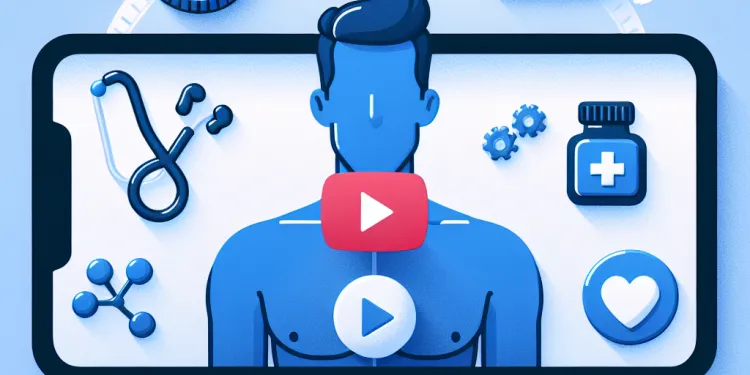
Am I more at risk of prostate cancer?
Relevance: 30%
-
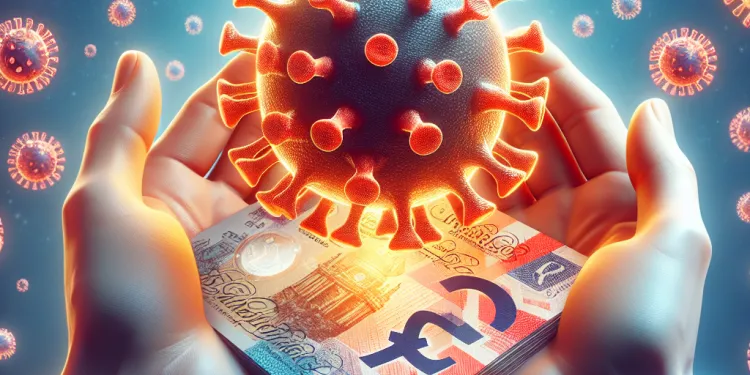
Can HPV lead to cancer?
Relevance: 30%
-
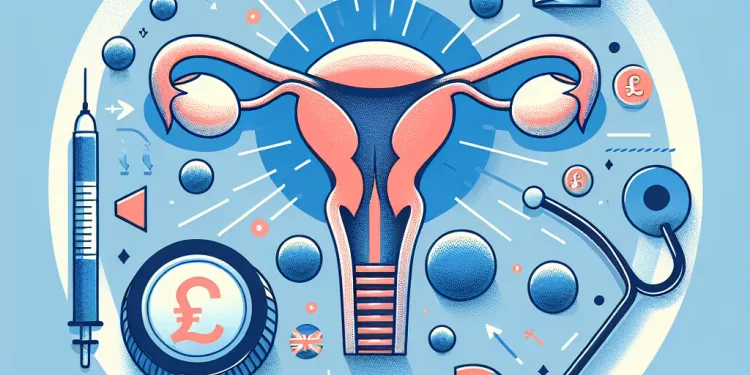
What are the symptoms of testicular cancer?
Relevance: 30%
-
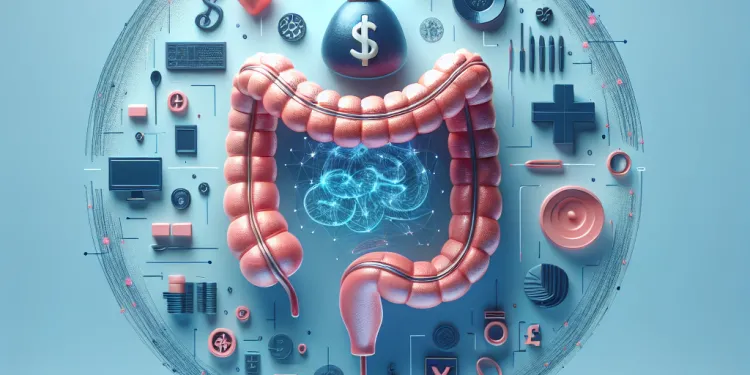
How common is bowel cancer?
Relevance: 30%
-

How to do the FIT bowel cancer screening test | Cancer Research UK
Relevance: 30%
-
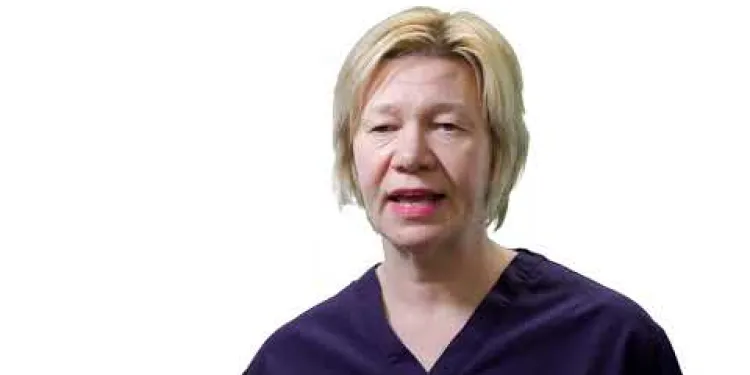
Head and Neck Cancer Diagnosis
Relevance: 30%
-

Can bowel cancer be prevented?
Relevance: 30%
-

How is bowel cancer diagnosed?
Relevance: 30%
About ovarian cancer
Ovarian cancer is a type of cancer that begins in the ovaries, which are the female reproductive organs responsible for producing eggs and hormones like estrogen and progesterone. Ovarian cancer often goes undetected until it has spread within the pelvis and abdomen, making it more difficult to treat effectively.
Here are some key points about ovarian cancer:
- Types: There are several types of ovarian cancer, with the most common being epithelial ovarian cancer, which arises from the cells that cover the outer surface of the ovary. Other less common types include germ cell tumors, which develop from the cells that produce eggs, and stromal tumors, which arise from the cells that produce hormones.
- Risk factors: Some factors may increase a person's risk of developing ovarian cancer, including a family history of ovarian or breast cancer, certain genetic mutations (such as BRCA1 and BRCA2), increasing age, and certain reproductive factors such as never having children or starting menstruation early and entering menopause late.
- Symptoms: Ovarian cancer can be difficult to detect in its early stages because the symptoms are often nonspecific and may mimic other conditions. Common symptoms include abdominal or pelvic pain, bloating, difficulty eating or feeling full quickly, urinary symptoms, changes in bowel habits, unexplained weight loss or gain, fatigue, back pain, menstrual changes, and pain during intercourse.
- Diagnosis: Diagnosis typically involves a combination of medical history evaluation, physical examination, imaging tests (such as ultrasound or CT scans), and blood tests (such as CA-125, a tumor marker that may be elevated in ovarian cancer). The definitive diagnosis is usually made through biopsy, which involves removing a sample of tissue for examination under a microscope.
- Treatment: Treatment options for ovarian cancer depend on the stage of the disease, the type of ovarian cancer, and other factors such as the patient's overall health and preferences. Treatment may include surgery to remove the tumor and surrounding tissue (which may involve removing one or both ovaries, the fallopian tubes, and the uterus), chemotherapy, targeted therapy, and sometimes radiation therapy.
- Prognosis: The prognosis for ovarian cancer varies depending on the stage at diagnosis and other factors. Early-stage ovarian cancer has a higher chance of being cured, while advanced-stage ovarian cancer is more difficult to treat and has a poorer prognosis. However, advances in treatment have improved outcomes for many patients, and ongoing research continues to explore new treatment options and approaches.
It's essential for individuals to be aware of the signs and symptoms of ovarian cancer and to seek medical attention promptly if they experience any concerning symptoms. Early detection and treatment can significantly improve outcomes for ovarian cancer patients.
Understanding Ovarian Cancer
What is Ovarian Cancer?
Ovarian cancer is a type of cancer that begins in the ovaries, which are part of the female reproductive system. It often remains undetected until it has spread within the pelvis and abdomen, making it more challenging to treat at later stages. Early-stage ovarian cancer, when the disease is confined to the ovary, is more likely to be treated successfully.Types of Ovarian Cancer
Ovarian cancer is not a single disease but comprises several types, each with its own variations and characteristics. The primary types are:- Epithelial Tumours: These originate in the thin layer of tissue covering the outside of the ovaries and account for about 90% of all ovarian cancers.
- Germ Cell Tumours: These begin in the cells that produce eggs and are rare, usually occurring in younger women.
- Stromal Tumours: These develop in the ovarian tissue that contains hormone-producing cells.
Symptoms of Ovarian Cancer
Ovarian cancer often goes unnoticed in its early stages because symptoms can be vague and easily mistaken for more common conditions. Some symptoms include:- Abdominal bloating or swelling
- Quickly feeling full when eating
- Weight loss
- Discomfort in the pelvic area
- Changes in bowel habits, such as constipation
- Frequent need to urinate
Risk Factors
Several factors can increase the risk of developing ovarian cancer:- Age, particularly women aged 50 and above
- Inherited gene mutations, such as BRCA1 and BRCA2
- Family history of ovarian or breast cancer
- Endometriosis
- Early menstruation or late menopause
Diagnosis and Treatment
Diagnosing ovarian cancer usually involves a combination of pelvic examinations, imaging tests like ultrasounds or CT scans, blood tests, and sometimes surgery to obtain a tissue sample. Treatment options often include:- Surgery to remove the ovaries, fallopian tubes, and sometimes the uterus
- Chemotherapy to kill any remaining cancer cells
- Targeted therapy and hormone therapies in certain cases
Support and Resources in the UK
In the United Kingdom, numerous organisations provide support and information for those affected by ovarian cancer. Some of these include: These organizations offer resources ranging from emotional support and medical advice to financial guidance and community forums.Conclusion
Ovarian cancer is a severe and often challenging condition, but early detection and appropriate treatment can substantially improve outcomes. Being aware of the symptoms and risk factors is crucial. Women in the UK can find support and resources through various dedicated organisations, providing comprehensive aid and information at every step of their journey.About Ovarian Cancer
Ovarian cancer is a kind of cancer that starts in the ovaries. The ovaries are small, round organs in women that make eggs and hormones. Two important hormones are estrogen and progesterone. Ovarian cancer is often not found until it has spread, which makes it harder to treat.
Here are some important things to know about ovarian cancer:
- Types: There are different types of ovarian cancer. The most common type is called epithelial ovarian cancer. It starts on the outside of the ovary. Other types are germ cell tumors, which start in the cells that make eggs, and stromal tumors, which start in the hormone-making cells.
- Risk Factors: Some things can make a person more likely to get ovarian cancer. These include having family members with ovarian or breast cancer, certain changes in genes (like BRCA1 and BRCA2), getting older, and never having kids or having periods very early or menopause very late.
- Symptoms: Early symptoms of ovarian cancer can be hard to notice. They can seem like other common problems. Symptoms can include tummy or lower belly pain, feeling full quickly after eating, needing to pee often, changes in bathroom habits, losing or gaining weight for no reason, feeling tired, back pain, changes in periods, and pain during sex.
- Diagnosis: To find out if someone has ovarian cancer, a doctor will look at their medical history, do an exam, and may use special pictures of the body (like an ultrasound or CT scan). Blood tests, like checking CA-125 levels, can also help. A sure way to know is by taking a small piece of tissue (biopsy) and looking at it under a microscope.
- Treatment: How a doctor treats ovarian cancer depends on how advanced it is, the type of cancer, and the patient's health. Treatment can include surgery to take out the tumor, ovaries, and sometimes other nearby organs. Other treatments are chemotherapy, targeted therapy, and sometimes radiation therapy.
- Prognosis: How well someone does with ovarian cancer depends on how early it is found. If it is found early, there is a better chance of getting cured. If it is found late, it is harder to treat. But new treatments are helping patients live longer, and research is finding new ways to treat it better.
It's very important to know the signs of ovarian cancer. If you have any symptoms that worry you, see a doctor quickly. Finding the cancer early can help treatment work better and improve your health.
Understanding Ovarian Cancer
What is Ovarian Cancer?
Ovarian cancer is a sickness that starts in the ovaries. The ovaries are part of a woman's body where babies grow before they are born. Ovarian cancer is hard to find early because it often spreads to other parts inside the belly before it is found. If doctors find ovarian cancer early, treatment usually works better.Types of Ovarian Cancer
Ovarian cancer is not just one sickness. There are different types:- Epithelial Tumours: These start in the outer layer of the ovaries and are the most common, making up about 90% of cases.
- Germ Cell Tumours: These start in the cells that make eggs. They are rare and usually happen in younger women.
- Stromal Tumours: These start in the part of the ovary that makes hormones.
Symptoms of Ovarian Cancer
Ovarian cancer is hard to notice at first because it can feel like other common problems. Some signs are:- Feeling swollen or bloated in the belly
- Getting full quickly when eating
- Losing weight without trying
- Feeling pain in the pelvis
- Changes in how often you poop, like constipation
- Needing to pee more often
Risk Factors
Certain things make it more likely to get ovarian cancer:- Being 50 years or older
- Family genes like BRCA1 and BRCA2
- Family history of ovarian or breast cancer
- Having endometriosis
- Starting periods early or having menopause late
Diagnosis and Treatment
To find ovarian cancer, doctors might do exams like looking at the pelvis, taking pictures inside the body with scans, and checking blood. Treatments can include:- Surgery to take out the ovaries, fallopian tubes, and sometimes the womb
- Chemotherapy, which uses medicine to kill cancer cells
- Special treatments that use hormones or target cancer in specific ways
Support and Resources in the UK
In the UK, there are places that can help people with ovarian cancer. Some helpful groups are: These groups offer help like talking to someone, getting advice from doctors, and finding help with money.Conclusion
Ovarian cancer is very serious, but if it is found early, treatment can work better. It's important to know the signs and what might increase the risk. Women in the UK can get help from many groups that offer lots of support and information.Frequently Asked Questions
What is ovarian cancer?
Ovarian cancer is a type of cancer that begins in the ovaries, which are the female reproductive glands that produce eggs. It is often detected at a later stage because it typically doesn't cause noticeable symptoms early on.
What are common symptoms of ovarian cancer?
Common symptoms of ovarian cancer include bloating, pelvic or abdominal pain, difficulty eating or feeling full quickly, and urinary symptoms such as urgency or frequency.
How is ovarian cancer diagnosed?
Ovarian cancer is diagnosed through a combination of pelvic examinations, imaging tests (like ultrasound or CT scans), blood tests (such as CA-125), and sometimes surgical biopsy.
What are the risk factors for ovarian cancer?
Risk factors include age (most common in women over 50), family history of ovarian or breast cancer, genetic mutations (like BRCA1 and BRCA2), endometriosis, and never having been pregnant.
Can ovarian cancer be detected early?
Early detection is challenging because there are no effective screening tests for ovarian cancer. Many symptoms are non-specific and can be attributed to other conditions.
What treatments are available for ovarian cancer?
Treatment options generally include surgery to remove the cancerous tissue, chemotherapy to kill cancer cells, and sometimes targeted therapy or hormonal therapy depending on the specific case.
How does surgery help in treating ovarian cancer?
Surgery aims to remove as much of the tumor as possible. This may involve removing one or both ovaries, fallopian tubes, and sometimes the uterus and other affected tissues.
What is the role of chemotherapy in treating ovarian cancer?
Chemotherapy involves using drugs to kill cancer cells and is often used after surgery to target any remaining cancer cells. It can also be used before surgery to shrink tumors.
Are there any side effects of ovarian cancer treatment?
Yes, side effects can include fatigue, nausea, hair loss, loss of appetite, and increased risk of infections. Long-term effects can vary depending on the treatment used.
What is the prognosis for ovarian cancer?
The prognosis depends on the stage at diagnosis, the type and grade of the cancer, and how well it responds to treatment. Early-stage ovarian cancer has a better prognosis than advanced stages.
Can ovarian cancer be inherited?
Yes, inherited gene mutations such as BRCA1 and BRCA2 can increase the risk of ovarian cancer. Genetic counseling and testing are available for those with a family history.
How can I reduce my risk of ovarian cancer?
Lifestyle changes, such as maintaining a healthy weight, using oral contraceptives, and considering risk-reducing surgery for those with a high genetic risk, may help reduce the risk.
Is there support available for those diagnosed with ovarian cancer in the UK?
Yes, many organisations, such as Ovarian Cancer Action, Target Ovarian Cancer, and Macmillan Cancer Support, provide resources, support groups, and information.
What should I do if I suspect I have symptoms of ovarian cancer?
If you experience symptoms that persist or worsen, see your GP as soon as possible. They may refer you for further tests to determine the cause of your symptoms.
Is ovarian cancer common in the UK?
Ovarian cancer is the sixth most common cancer among women in the UK. Around 7,500 women are diagnosed with ovarian cancer each year in the UK.
What is ovarian cancer?
Ovarian cancer is a disease. It happens when cells in the ovaries grow too fast. Ovaries are small parts inside a woman's body. They help make babies.
If you find it hard to read, ask someone to help. You can use a finger or ruler to follow the words. Listening to the words out loud can also help.
Ovarian cancer is a kind of cancer that starts in the ovaries. Ovaries are the special parts of a woman's body that make eggs. It is often found out late because it does not usually have signs at the start.
What are common signs of ovarian cancer?
Ovarian cancer is a sickness that starts in the ovaries. Ovaries are part of a woman's body where eggs are made.
Here are some signs to look out for:
- Tummy pain or swelling
- Feeling full quickly when eating
- Needing to pee more often
- Weight loss without trying
- Feeling tired all the time
It's important to tell a doctor if you have these signs. They can help find out what's wrong and make you feel better.
Ovarian cancer can make you feel some common signs. These signs include:
- Your tummy feels bloated.
- You have pain in your tummy or lower belly area.
- You have trouble eating or feel full very fast.
- You might need to pee a lot or feel like you have to pee right away.
It can help to talk to a doctor if you notice these signs. You can also keep track of when you feel these symptoms. Writing them down on a calendar might be useful.
How do doctors find out if someone has ovarian cancer?
Doctors have ways to check for ovarian cancer:
- Visit a Doctor: A doctor will ask questions about how you feel and check your body.
- Ultrasound: This is a special picture of the inside of your tummy. It helps doctors see if there is anything unusual.
- Blood Test: This test checks for signs of cancer in your blood.
- CT Scan: This is like an x-ray that shows detailed pictures of inside your body.
If you need help understanding this, you can ask a family member or a friend to explain. You can also use pictures or videos to learn more about these tests.
Doctors find out if someone has ovarian cancer by doing a few tests. They check inside the body with their hands (this is called a pelvic exam). They also take pictures with special machines (like ultrasound or CT scan). Sometimes, they test the blood for signs of cancer. One of these tests is called CA-125. If they still need to be sure, they might do a small surgery to take a bit of tissue and check it.
For someone who finds it hard to read, using tools like text-to-speech can help. It's also a good idea to have someone read it out loud with you. You can use a highlighter to pick out the important parts.
What things can make it more likely to get ovarian cancer?
Here are some things that can make it more likely to get ovarian cancer:
- Getting older
- A family history of ovarian or breast cancer
- Certain gene changes, like BRCA1 and BRCA2
- Never having a baby or having a baby after age 35
- Using hormone replacement therapy
To help understand better, you can:
- Use pictures or diagrams to see information visually
- Ask someone you trust to explain it to you
- Use voice reading tools to read the text out loud
Here are some things that might make getting a certain illness more likely:
- Being a woman over 50 years old.
- Having family members who had ovarian or breast cancer.
- Having certain changes in your genes, like BRCA1 and BRCA2.
- Having a condition called endometriosis.
- Never having been pregnant.
You can try talking to a doctor or using a health app to learn more. They can help you understand and keep healthy.
Can doctors find ovarian cancer early?
Doctors want to find cancer early. It helps to treat it better.
Ovarian cancer is tricky. It's hard to find early. But doctors try their best.
Here are some ways doctors check for ovarian cancer:
- Regular Check-ups: Visit your doctor. They can help watch for signs.
- Listen to Your Body: Tell your doctor if you feel different. It's important.
- Family History: Let your doctor know if family members had cancer.
It is good to ask questions. You can write them down before seeing the doctor. A friend or caregiver can go with you to the doctor.
It's hard to find ovarian cancer early. There are no good tests to find it before it grows. The signs of ovarian cancer can seem like other problems.
What treatments can help with ovarian cancer?
Doctors have different ways to help people with ovarian cancer. Here are some treatments that might help:
- Surgery: Doctors can remove the cancer through an operation.
- Chemotherapy: This uses special medicine to kill the cancer cells.
- Radiation Therapy: It uses high-energy rays to kill the cancer.
- Targeted Therapy: This treatment targets the cancer cells without hurting normal cells.
If you have ovarian cancer, talk to your doctor about what’s best for you. It helps to write down questions before you go. You can also bring someone with you to appointments.
There are different ways to treat cancer. Doctors might do surgery to take out the cancer. They might use special medicine called chemotherapy to get rid of cancer cells. Sometimes, doctors use other treatments like targeted therapy or hormonal therapy. The kind of treatment depends on what type of cancer it is.
How can surgery help treat ovarian cancer?
Surgery can help get rid of cancer in the ovaries. Doctors can take out cancer to make people feel better and live longer.
If you need surgery, doctors will talk to you about it. They will explain what will happen. You might need someone to help you understand.
Using tools like pictures or videos can help you learn more about surgery. You can also ask a friend, family member, or support worker to help explain things to you.
Surgery is when doctors try to take out as much of the tumor as they can. They might need to take out one or both ovaries, the tubes next to them, and sometimes the womb and other parts if they are sick too.
How does chemotherapy help treat ovarian cancer?
Chemotherapy is a type of medicine used to fight cancer. It helps to kill cancer cells or stop them from growing. Doctors use chemotherapy to help treat ovarian cancer.
If you or someone you know is learning about chemotherapy, here are some tools and techniques that might help:
- Simple words: Use easy words to understand what chemotherapy does.
- Pictures: Look at pictures that show how chemotherapy works.
- Ask questions: It's okay to ask your doctor questions to understand more.
- Videos: Watch videos made for kids to see how chemotherapy helps fight cancer.
Chemotherapy uses strong medicine to kill cancer cells. Doctors use it after surgery to get rid of any cancer cells that are still there. Sometimes, doctors use chemotherapy before surgery to make the tumors smaller.
Do treatments for ovarian cancer cause any problems?
When someone gets medicine for ovarian cancer, it might cause other problems in the body. These are called side effects. It is important to talk to a doctor or nurse about how you feel during treatment.
There are some ways to make side effects better:
- Talking to a doctor or nurse about any changes you feel.
- Using medicines that can help with feeling sick or tired.
- Eating healthy foods and drinking lots of water.
- Resting when you feel tired.
- Asking family or friends for help with chores.
Yes, there can be side effects. You might feel very tired, feel sick, lose hair, not feel like eating, and get sick more easily. Some effects might last a long time, and it depends on the treatment.
For support, use simple reading tools that can read text out loud. You can also use colorful pictures to help understand words better. Talking with a grown-up can also help.
What will happen if someone has ovarian cancer?
Ovarian cancer affects the ovaries in the body. It's important to talk to doctors to understand what might happen.
Doctors will look at how early the cancer is found. If it's found early, treatment can work better.
If the cancer is found later, it might be harder to treat. But doctors have different ways to help. They can use medicine, surgery, or other treatments.
Everyone is different, so it is good to have support. Talking to family, friends, and support groups can help a lot.
Doctors use tests and check-ups to see how the person is doing. This helps them know what to do next.
There are tools and apps that can remind you to take medicine and go to appointments. These can be very helpful. Always talk to your doctors if you have questions.
The outlook for getting better depends on a few things. It depends on how early the cancer is found, what type of cancer it is, and how serious it is. It also depends on how well the treatment works. If ovarian cancer is found early, there is a better chance of getting better than if it is found later.
Helpful Tools: Try using pictures or videos to learn more about ovarian cancer. They can help make the information clearer. Talking to a doctor or nurse can also help you understand this better.
Can you get ovarian cancer from your family?
Yes, ovarian cancer can run in families. This means if someone in your family had it, you might have a higher chance of getting it too.
It's important to talk to a doctor about your family history. They can tell you more about your chances.
If reading is hard, you can ask someone you trust to help you understand this. You can also try using audiobooks or voice reading apps that can read out loud for you.
Yes, changes in genes that you are born with, like BRCA1 and BRCA2, can make the chance of getting ovarian cancer higher. If people in your family have had this type of cancer, you can talk to a doctor about checking your genes.
How can I lower my chance of getting ovarian cancer?
You can do some things to help stay healthy. Try to keep a healthy weight. You can also think about taking birth control pills. If your family has a high chance of some illnesses, you might want to talk to a doctor about special surgeries to lower that risk.
Can people with ovarian cancer in the UK get help?
If someone in the UK has ovarian cancer, they can get help. There are places and people ready to support them.
Here are some ways they can find support:
- Talk to doctors and nurses. They can give advice and care.
- Join a support group. This is a place where people with the same problem talk and help each other.
- Look for online help. There are websites with information and help.
- Use a helpline to talk to someone who understands.
These can help people feel better and less alone.
Yes, there are groups that can help. These include Ovarian Cancer Action, Target Ovarian Cancer, and Macmillan Cancer Support. They have helpful things, support groups, and information.
What should I do if I think I have signs of ovarian cancer?
If you feel unwell and think it might be ovarian cancer, it's important to talk to a doctor. They can help you understand what is going on.
Some signs to watch for are pain in your belly, feeling full quickly when eating, needing to pee more often, or having a swollen belly. If you have these signs, it's good to check with a doctor.
Here are some tips to help you:
- Talk to someone you trust: Share how you feel with a family member or friend.
- Write it down: Keep a list of how you feel and any signs you notice. This can help when you talk to the doctor.
- Ask questions: Don't be afraid to ask the doctor any questions.
Remember, the doctor is there to help you!
If you feel unwell and it does not get better, go to your doctor quickly. Your doctor might send you for more tests to find out why you are not feeling well.
Do many people in the UK get ovarian cancer?
Ovarian cancer is when cells in the ovaries grow in a way that is not normal.
It is important to know that not many people get ovarian cancer. It is not as common as other cancers.
If you are worried, talking to a doctor can help. They can answer your questions.
To learn more, you can use helpful tools like pictures or videos. These can make things easier to understand.
Ovarian cancer is a kind of cancer that affects women. In the UK, it is the sixth most common cancer for women. About 7,500 women find out they have ovarian cancer every year in the UK.
Useful Links
Useful links from: Ovarian cancer - signs and symptoms to look out for
- NHS - Ovarian Cancer Comprehensive information from the NHS on ovarian cancer, covering symptoms, causes, diagnosis, treatment, and living with ovarian cancer.
- Target Ovarian Cancer UK-based charity offering extensive resources on ovarian cancer, including signs and symptoms, risk factors, and patient support.
- Ovacome An ovarian cancer support charity providing information on the symptoms, diagnosis, and treatment of ovarian cancer, as well as emotional and psychological support.
- Cancer Research UK - Ovarian Cancer Detailed information from Cancer Research UK on the signs and symptoms of ovarian cancer, including stages, treatments, and ongoing research.
Useful links from: Raising awareness of ovarian cancer
- NHS Ovarian Cancer Overview The NHS provides a comprehensive overview of ovarian cancer, including symptoms, causes, diagnosis, treatment, and prevention tips.
- Target Ovarian Cancer Target Ovarian Cancer is a UK-based charity dedicated to raising awareness, funding research, and supporting women with ovarian cancer.
- Ovacome Ovacome is a nationwide ovarian cancer charity that offers support services, awareness campaigns, and information on the latest research.
- Cancer Research UK - Ovarian Cancer Cancer Research UK provides detailed information on ovarian cancer, its symptoms, risk factors, treatment options, and research developments.
- Ergsy carfully checks the information in the videos we provide here.
- Videos shown by Youtube after a video has completed, have NOT been reviewed by ERGSY.
- To view, click the arrow in centre of video.
- Most of the videos you find here will have subtitles and/or closed captions available.
- You may need to turn these on, and choose your preferred language.
- Go to the video you'd like to watch.
- If closed captions (CC) are available, settings will be visible on the bottom right of the video player.
- To turn on Captions, click settings .
- To turn off Captions, click settings again.
More Items From Ergsy search
-

Ovarian Cancer
Relevance: 100%
-

Raising awareness of ovarian cancer
Relevance: 91%
-

Ovarian cancer - signs and symptoms to look out for
Relevance: 84%
-

Taking a Genetic Family History - The Conversation (Bowel Cancer)
Relevance: 36%
-

What is Cancer?
Relevance: 33%
-

Vaginal Cancer
Relevance: 33%
-

Endometrial Cancer
Relevance: 33%
-

Vulval Cancer
Relevance: 33%
-

Endometrial Cancer
Relevance: 33%
-

Endometrial Cancer
Relevance: 33%
-

What are the risk factors for bowel cancer?
Relevance: 33%
-

What is the difference between colon cancer and rectal cancer?
Relevance: 32%
-

What is testicular cancer?
Relevance: 32%
-

What is colorectal cancer?
Relevance: 31%
-

What is Bowel Cancer?
Relevance: 31%
-

Treating prostate cancer
Relevance: 31%
-

Mouth Cancer Awareness
Relevance: 31%
-

What is testicular cancer?
Relevance: 31%
-

What is Prostate Cancer?
Relevance: 31%
-

What is testicular cancer?
Relevance: 31%
-

Is testicular cancer treatable?
Relevance: 31%
-

Skin cancer education
Relevance: 31%
-

Living with prostate cancer
Relevance: 31%
-

What is Pancreatic Cancer?
Relevance: 31%
-

Mouth Cancer Infomercial
Relevance: 31%
-

Skin Cancer - How do I check if my mole is skin cancer? | NHS
Relevance: 31%
-

Breakthrough in Cancer Treatment Offers Hope for Prostate Cancer Patients
Relevance: 31%
-

AI Breast Cancer Screening in the UK
Relevance: 31%
-

How common is testicular cancer?
Relevance: 30%
-

What causes testicular cancer?
Relevance: 30%
-

What are the stages of testicular cancer?
Relevance: 30%
-

Who is at risk for testicular cancer?
Relevance: 30%
-

Am I more at risk of prostate cancer?
Relevance: 30%
-

Can HPV lead to cancer?
Relevance: 30%
-

What are the symptoms of testicular cancer?
Relevance: 30%
-

How common is bowel cancer?
Relevance: 30%
-

How to do the FIT bowel cancer screening test | Cancer Research UK
Relevance: 30%
-

Head and Neck Cancer Diagnosis
Relevance: 30%
-

Can bowel cancer be prevented?
Relevance: 30%
-

How is bowel cancer diagnosed?
Relevance: 30%